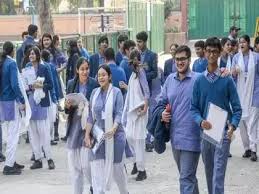DUBAI: Educating young girls and women is vital in a world trying to keep pace with technological advances, agreed international officials, NGOs and activists who convened at Expo 2020 Dubai’s Knowledge and Learning Week, part of the mega-event’s Programme for People and Planet.
There are currently an estimated 132 million young women around the world who are not in full-time education, so devising and implementing the right policies is critical. But this also requires communities and families to recognise the immense value of their education.
Speakers gathered at the World Expo’s Nexus for People and Planet, the Women’s Pavilion, DP World Pavilion and RewirEd at the Dubai Exhibition Centre (DEC) to discuss the various challenges and solutions.
His Excellency Dr Tariq Al Gurg, CEO and Vice Chairman, Dubai Cares, said: “There are exceptional stories of female leaders around the world taking on challenges of the greatest complexities, leaving a legacy for all humanity. But we also have 132 million girls who may never achieve their potential, and these are 132 million missed opportunities.”
His Excellency Jakaya Kikwete, Former President of Tanzania and Board Chair, Global Partnership of Education, said: “Girls’ access to education continues to face hurdles. Many parts of Africa are patriarchal, with boys given priority; families in poverty have to choose between educating either boys or girls, and therefore choose boys; and families are disincentivised by schools far from home, leading to safety concerns, or those with inadequate facilities, like a limited water supply for hygienic needs… but governments are responsible for implementing policies that promote equity in education, and address all idiosyncrasies.”
These policies must be coupled with an understanding of cultural implications, said Dr Mohammed Farsi, Senior Cultural Consultant, Islamic Affairs and Charitable Activities Department (IACAD), who added that some societies feel education threatens their traditional values, often rooted in religion. He used the example of Islam’s early growth, which had female scholars, legislators and more, to help others recognise that female education is not antithetical to their social identity.
The effect of the recent pandemic was also discussed, with girls in some countries taken out of schools to help at home. Dr Rita Bissoonauth, Head of Mission, The African Union – International Centre for the Education of Girls and Women in Africa (AU/CIEFFA) said that in such circumstances, girls rarely return to their education, either because it is not allowed or because social norms discourage it: “The biggest barriers are very often the community – parents, grandparents – and this is why we work a lot with religious and cultural leaders, because it has to be a grassroots approach.”
Indeed, Anojitha Sivaskaran, Youth and Peace Activist, Global Refugee Education Council, who was forced to halt her schooling for nearly eight months during Sri Lanka’s civil war, credits her parents for prioritising her education over all else, devoting the little resources they had to their children’s schooling. She described her growth as a result of support and mentorship from other family members, and even those from different ethnic groups, adding that while it is important for international bodies to investigate human rights violations in such an event, it is also imperative to rapidly mobilise resources for education.
This was echoed by Yasmine Sherif, Director, Education Cannot Wait, a global fund by the UN aimed at transforming the delivery of education in emergencies: “Education was seen as something that can wait until a crisis was over, until refugees and those forcibly displaced can return home. As we know now, conflicts last – indeed, Afghanistan and Sri Lanka still have many internally displaced. Conflicts and climate-induced disasters don’t end, and the rate of refugees and IDPs is at its highest since the Second World War. Their education cannot wait.”
Organisations around the world have risen to the challenge to develop innovative solutions to address gaps in girls’ schooling. Educate Girls, an Indian non-profit that mobilises communities towards girls’ education, has found that of 132 million girls out of school, one fifth are in India, and 40 per cent of them are distributed in only five per cent of the country’s villages. Mobilising communities toward girls’ education in some of the hardest-to-reach villages, the organisation has enrolled 950,000-plus girls in schools to-date, impacted over 11.5 million beneficiaries, and expanded operations to 20,000 villages through a 15,000-plus team of community volunteers.
Meanwhile, Estonia-based Metataellus is trying to educate girls in the technology sector, as the country is know for its many high-value start-ups. Its initiatives include the Unicode Squad, a voluntary programme for girls to learn technological skills, such as robotics, as well as a coding school.
Looking to the future of education for girls when it comes to technology, Dr Rita Bissoonauth summarised: “What is very important to us is meshing technology with the human aspect – the cognitive, the social and emotional skills, and values, because we know that in the next 20 years or so, it is not only knowledge that will count, but how we unlearn to relearn. The future of work then becomes the survival of the most adaptable.”
































